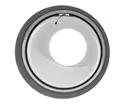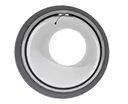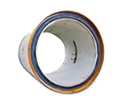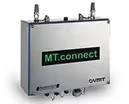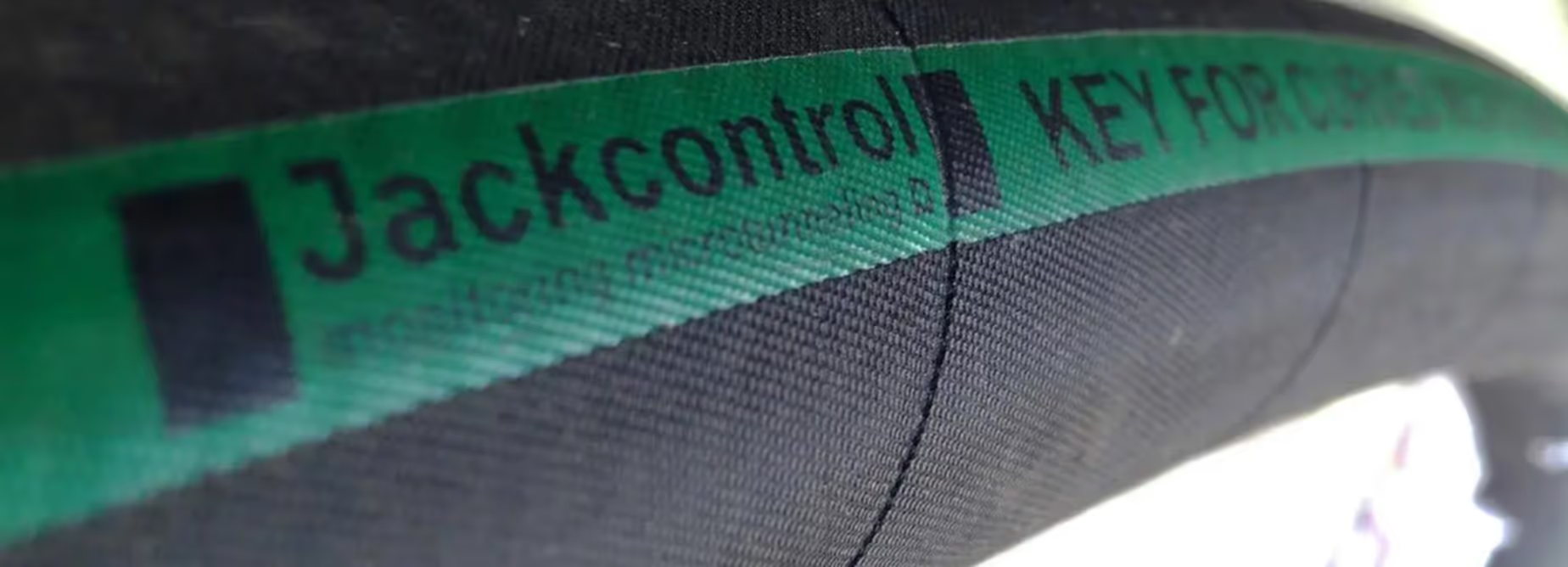

The Hydraulic Joint
Your key to curved Microtunneling – in all directions!
Enables your alignment in demanding conditions.
Full control of jacking force and pressure transfer.
Minimize risk and prevent pipe damage.
Key Advantages for Your Project
Cost Optimization
Maximum alignment flexibility, saving shaft cost.
Maximum drive length, saving shaft cost.
Maximum pipe length, not only in curves.
Minimum friction and jacking force.
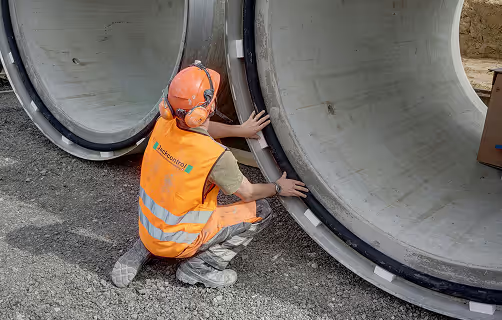
Maximum tunneling process control
Full knowledge of jacking force and eccentricity (in combination with MSS an MT.connect).
Maximum knowledge on structural utilization and jacking capacity.
Maximum control of jacking process.
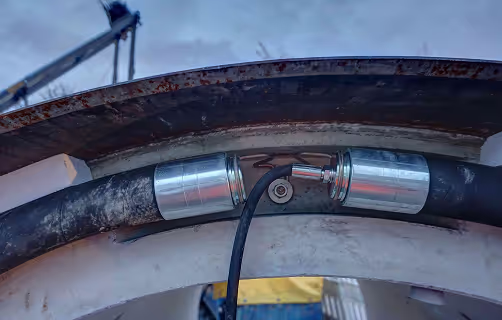
Curved Microtunneling the reliable way
More than 500 successful curved drives in more than 20 years.
Controlling the jacking process – also in demanding conditions.
Protecting the steel collar in combination with JCGrout.
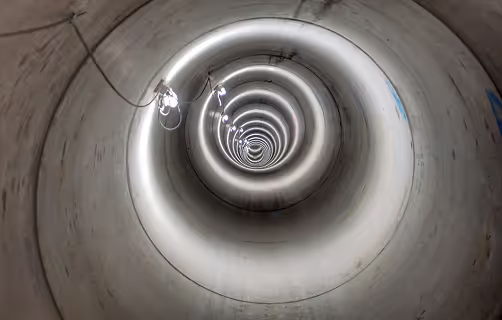
Minimizing environmental impact by long / curved alignment
Less shafts needed.
Minimizing noise, dust and vibration.
Minimizing spoil transport and dump.
Minimizing traffic obstruction.
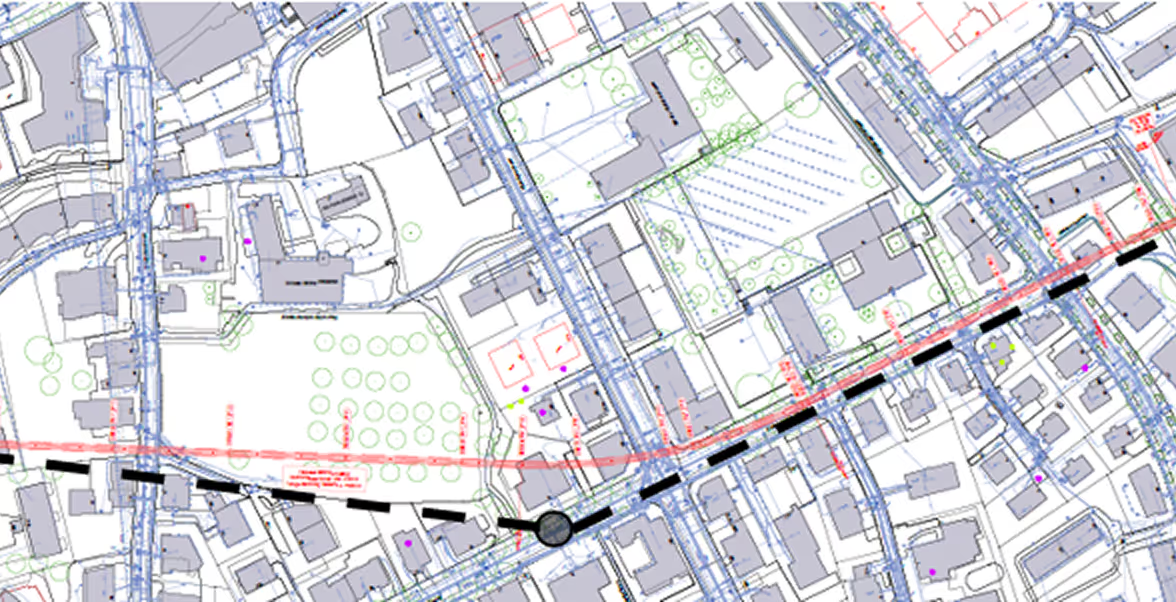
Hydraulic Joint
Function
The safe transfer of the jacking force from pipe to pipe up to the tunnel boring machine (TBM) and tunnel face is essential in microtunnelling and pipe jacking. The possibility of being able to transfer high jacking forces is indispensable for an efficient way of driling.
Pressure transfer media made of wood materials prove their worth on straight tunnels. However, with larger joint angles and / or tighter curve radii, they reach their limits, i.e. only significantly smaller jacking forces Q can be transferred from pipe to pipe without damaging the pipes. Consequently, the admissible jacking force Q for articulated pipe joints and thus the jacking performance is significantly reduced. Articulation angles between jacking pipes occur not only as a result of planned alignment curvature, but also as a result of steering movements of the TBM, as a result of changing geological conditions and also as a result of manufacturing tolerances in the jacking pipes. The characteristic, irreversible material behaviour of a conventional pressure transfer ring made of timber results in stress concentrations on the inside of the curve when the pipe joint is articulated, which can exceed the strength of the pipe wall even at apparently small angles, while the joint on the outside of the curve is gaping and thus no jacking force is transmitted there.
The advantages
Higher jacking forces
Smaller curve radii
Longer jacking pipes
Permanent, real-time monitoring
Many intervention possibilities
Systematic secondary joint sealing
Minimum possible curve radius

Example
How small can the minimum curve radius be selected for a jacking pipe of DN 1800 mm and a length 3 m? Assuming a usual wall thickness (e.g. 180 mm), a minimum curve radius of 100 m can be advanced for a pipe length of 3 m.
Typical Applications
Microtunneling in urban areas with limited surface space available.
Tunnels under sensitive infrastructure like buildings, roads and railways.
When risk mitigation is important.
When high jacking pipe quality/durability is required.
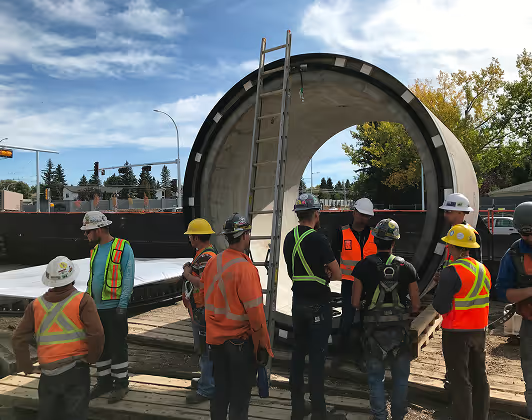
F.A.Q.
How does the hydraulic joint improve pipe integrity?
By distributing thrust forces evenly, it reduces stress peaks and thrust eccentricity,
preventing cracks, concrete spall-offs and other pipe damage.
Will I need special equipment for installation?
No, our joint is compatible with standard pipe-jacking setups and integrates seamlessly
into existing workflows.
Can it handle varying soil conditions?
Yes. Our design is flexible and adapts to different geological scenarios, maintaining
consistent drilling/jacking performance.
Does it require ongoing maintenance?
Minimal. Regular inspections suffice, and real-time monitoring reduces the need for
frequent manual checks.
Is it suitable for long-distance projects?
Absolutely. Its enhanced strength and durability make it ideal for extended tunnels.
Take action, don’t let technical limits constraint your goals.
Contact us today to see how our Hydraulic Joint can optimize your microtunneling or pipejacking project.



